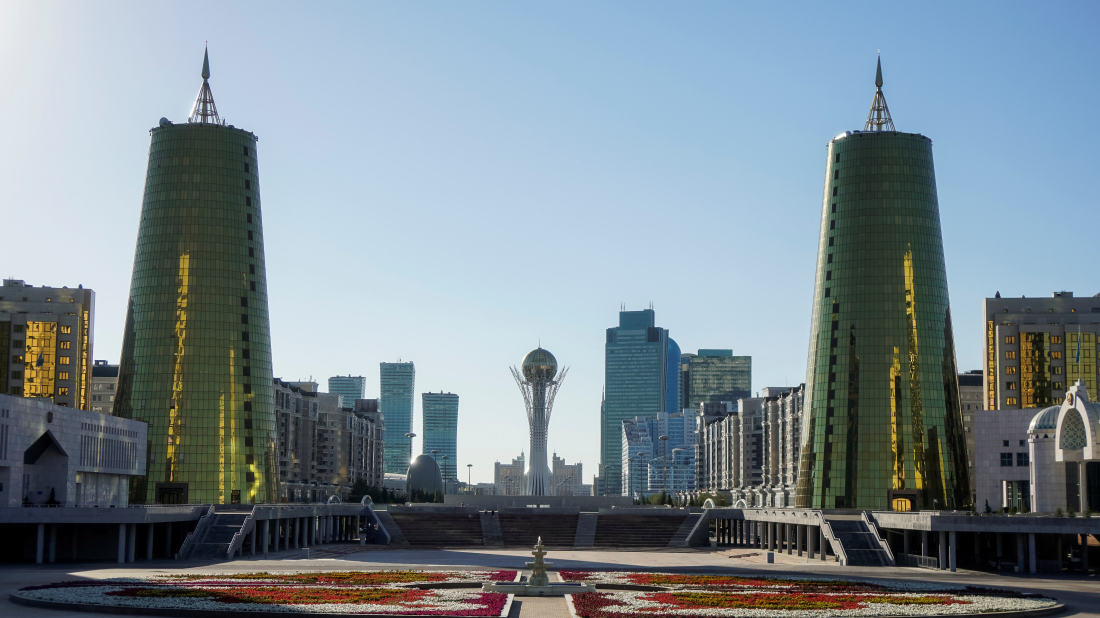Trump says second U.S. carrier possible if Iran talks fail
U.S. President Donald Trump says Washington could deploy a second aircraft carrier strike group to the Middle East if nuclear negotiations with Iran c...

Kazakhstan's e-commerce sector has soared to 3.2 trillion tenge (around 6.2 billion U.S. dollars) in 2024, marking a sevenfold increase since 2020, according to Deputy Prime Minister Serik Jumanğarin.
Kazakhstan's e-commerce landscape has undergone a dramatic transformation over the past five years, with digital trade now accounting for 14.1 percent of the country's total retail turnover. The surge from 476 billion tenge (approximately 918 million U.S. dollars) in 2020 to 3.2 trillion tenge in 2024 reflects not only shifting consumer habits but also targeted government support and infrastructure development.
Speaking in response to a parliamentary inquiry, Deputy Prime Minister and Minister of National Economy Serik Jumanğarin noted that despite the strong growth in online shopping, many Kazakh consumers remain cautious. Concerns over fraud and digital trust continue to drive a preference for traditional brick-and-mortar retail.
Kazakhstan is currently home to 104 registered e-commerce platforms, including dominant players such as Kaspi.kz, Wildberries, Ozon, and Halyk Market. These platforms are central to the country's digital retail economy, offering a wide range of goods and services nationwide.
To support this expanding ecosystem, significant investments are being made in logistics and delivery infrastructure. National postal operator Kazpost is developing 85,000 square metres of warehouse space across key cities including Almaty, Aktobe and Turkistan. Private sector giants Wildberries and Ozon are also ramping up their presence with the construction of new logistics hubs in Almaty and the capital, Astana.
Jumanğarin also highlighted improvements in digital payment security. Global payment providers Visa and Mastercard have introduced artificial intelligence-driven tools aimed at reducing fraud and enhancing the customer experience for online transactions.
The Kazakh government continues to prioritise the digital economy as part of its broader modernisation agenda, with e-commerce positioned as a key driver of domestic growth and international trade integration.
JD Vance arrived in Armenia on Monday (9 February), becoming the first sitting U.S. Vice President to visit the country, as Yerevan and Washington agreed to cooperate in the civil nuclear sector in a bid to deepen engagement in the South Caucasus.
António José Seguro’s decisive victory over far-right challenger André Ventura marks an historic moment in Portuguese politics, but analysts caution that the result does not amount to a rejection of populism.
J.D. Vance met Azerbaijan's president Ilham Aliyev in Baku on a rare visit by a sitting U.S. vice president, signalling a renewed push to deepen cooperation with Azerbaijan on energy, security and regional stability.
Buckingham Palace said it is ready to support any police investigation into allegations that Prince Andrew shared confidential British trade documents with late sex offender Jeffrey Epstein, as King Charles expressed “profound concern” over the latest revelations.
Iran’s atomic energy chief says Tehran could dilute uranium enriched to 60 per cent if all international sanctions are lifted, stressing that technical nuclear issues are being discussed alongside political matters in ongoing negotiations.
J.D. Vance met Azerbaijan's president Ilham Aliyev in Baku on a rare visit by a sitting U.S. vice president, signalling a renewed push to deepen cooperation with Azerbaijan on energy, security and regional stability.
A scheduled visit to Ankara this week by Greek Prime Minister Kyriakos Mitsotakis will seek to “resolve all our problems at the table,” Ömer Çelik, a spokesman for Türkiye’s ruling AK Party, has said.
The European Union is preparing a further expansion of its sanctions against Russia, with Central Asia emerging for the first time as a distinct point of focus.
Azerbaijan and the United States signalled closer economic ties on Monday (9 February) as President Ilham Aliyev hosted a delegation from the U.S. Chamber of Commerce, highlighting the country’s investment appeal and growing interest from American companies.
“Peace is not just about signing treaties - it’s about communication, interaction and integration,” Sultan Zahidov, leading adviser at the AIR Center, told AnewZ, suggesting U.S. Vice President JD Vance's visit to the South Caucasus could advance the peace agenda between Azerbaijan and Armenia.
You can download the AnewZ application from Play Store and the App Store.

What is your opinion on this topic?
Leave the first comment